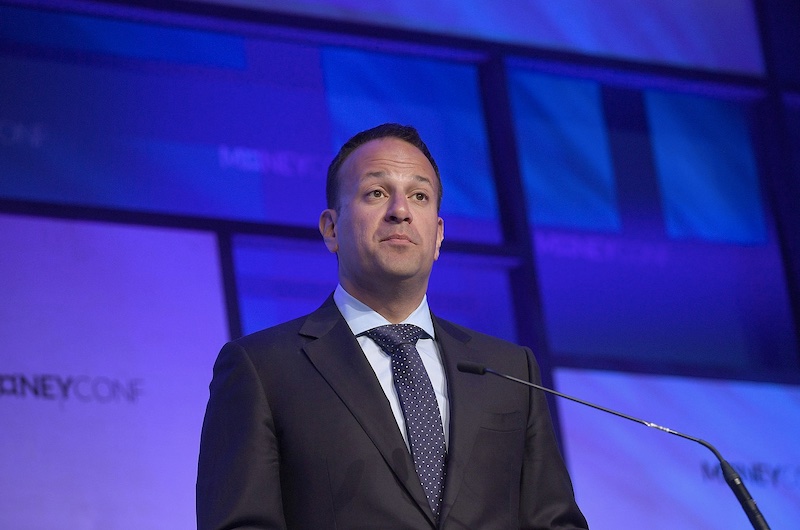Social conservatives emboldened by week of victories
But LGBT-rights advocates say it's just spin

Social conservatives are coming off of a high this week, which proved to be one of the brightest their cause has witnessed in years.
After a Republican wave swept the nation on Election Day, delivering control of the Senate to the GOP and increasing the Republican majority in the House of Representatives, social conservatives insist voters have affirmed their opposition to such things as same-sex marriage at the ballot box. According to Brian Brown, president of the National Organization for Marriage, Tuesday’s election was a message to Republican leaders that compromise on same-sex marriage is not a winning strategy.
“In red states and blue, candidates who supported marriage as the union of one man and one woman won election and those who didn’t were rejected by voters,” Brown said in a statement. “The Republican Party should take note that their nominees who favored gay ‘marriage’ were opposed by NOM and they were resoundingly defeated.” Brown pointed to victories for Republican Senate candidates Thom Tillis, who defeated Sen. Kay Hagan in North Carolina, and Tom Cotton, who defeated Sen. Mark Pryor in Arkansas (Pryor is one of three Senate Democrats who have not endorsed same-sex marriage). According to NOM, they spent $200,000 in those two Senate races, and “mounted extensive grassroots efforts” supporting Senators-elect Joni Ernst in Iowa and BenSasse in Nebraska as well as Sen. Pat Roberts and Gov. Sam Brownback in Kansas.
“It’s time for the GOP elite and consultant class to wake up and realize that marriage is a winning issue, in red states and blue,” Brown added.
In September, social conservatives declared war on three pro-LGBT Republican candidates for Congress this election, including two openly gay Republicans. In a letter sent to Republican leaders in September, Brown, along with Tony Perkins of the Family Research Council and Tom Minnery of CitizenLink, vowed to help defeat openly gay Republican congressional candidates Richard Tisei in Massachusetts and Carl DeMaio in California. They also targeted Monica Wehby in Oregon, who supports same-sex marriage and was attempting to unseat Sen. Jeff Merkley. In the run up to Election Day, NOM went so far as the endorse the Democratic opponents of those three Republicans, arguing they would be less harmful in the minority than a pro-LGBT Republican would be in the majority.
Both Tisei and Wehby were defeated by large margins. DeMaio’s race remains too close to call, but Peters currently leads by 861 votes. According to Brown, such defeats were a “stunning rebuke” of those who wish to “redefine” marriage.
“As much as the Republican Establishment hates to admit it, marriage was a key ingredient in the recipe to defeat Democrats,” Perkins said in a Thursday email to supporters.
But despite an election night that saw few gains for the LGBT-rights movement, and indeed a number of defeats for LGBT candidates who were not incumbents, advocates insist that voters delivered no clear mandate to social conservatives.
“The idea that [social conservatives] should be emboldened by the past week is laughable — they had absolutely nothing to do with the defeats of Tisei or Wehby, and the GOP wave we saw at the ballot box was driven almost entirely by economic issues coupled with a dissatisfaction with Democratic incumbents,” said Gregory T. Angelo, executive director of Log Cabin Republicans, in an email to Metro Weekly.
“The election results had nothing to do with LGBT people or marriage equality. If elections have themes, this one’s was ‘throw the president’s buddies out.’ The bad news is that many of them were pro-equality legislators. The silver lining is that not a single one of them was thrown out because they were pro-equality,” added Fred Sainz, vice president of the Human Rights Campaign.
Indeed, it appears there was not a single race where supporting LGBT equality cost an elected officials their seat, and Republicans who were victorious tended to avoid LGBT issues altogether. Some pro-LGBT Republicans, such as Sen. Susan Collins of Maine, were easily reelected. All six out members of the House up for reelection won their races.
According to Sainz, Tuesday’s election provides an opportunity to educate those members of Congress who are not yet allies. “It’s clear that when people know us, when they understand that we’re just like them, they’re apt to change their minds and become allies,” he said. “So we’ll be putting on our walking shoes and walking the halls of Congress – a lot – over the next few years to make sure that the new members become allies.”
While LGBT-rights advocates prepare for a less LGBT-friendly class of lawmakers come January, social conservatives were delivered another victory Thursday when the 6th Circuit Court of Appeals upheld same-sex marriage bans in four states — marking the first time a federal appeals court has ruled against marriage equality since the Supreme Court’s Windsor decision in June 2013.
Although social conservatives praised the 2-1 decision, they still found things to criticize. Brown said the assertion made in the decision that momentum for same-sex marriage shows no signs of slowing is incorrect, as demonstrated by the defeat of both Democratic and Republican supporters of marriage equality on Election Day.
“The movement to redefine marriage does not benefit from having momentum, it benefits from the exercise of raw political power by federal and state judges and politicians bent of imposing their politically-correct view of the world on the American people,” he said. The same week both a state court and a federal court declared Missouri’s same-sex marriage ban unconstitutional.
But as opponents of same-sex marriage rejoice in finally claiming a federal appeals court win, the split created by that decision among the circuit courts makes it all the more likely the Supreme Court will at last address once and for all — and perhaps as soon as June 2015 — whether there is a constitutional right to same-sex marriage in all 50 states.
Said Angelo, “Far from generating enthusiasm, the 6th Circuit decision should terrify those opposed to marriage equality as it means the Supreme Court is more likely to take up the case now and rule on a federal constitutional right to marriage equality that would make same-sex marriage legal in all 50 states.”
Support Metro Weekly’s Journalism
These are challenging times for news organizations. And yet it’s crucial we stay active and provide vital resources and information to both our local readers and the world. So won’t you please take a moment and consider supporting Metro Weekly with a membership? For as little as $5 a month, you can help ensure Metro Weekly magazine and MetroWeekly.com remain free, viable resources as we provide the best, most diverse, culturally-resonant LGBTQ coverage in both the D.C. region and around the world. Memberships come with exclusive perks and discounts, your own personal digital delivery of each week’s magazine (and an archive), access to our Member's Lounge when it launches this fall, and exclusive members-only items like Metro Weekly Membership Mugs and Tote Bags! Check out all our membership levels here and please join us today!
























